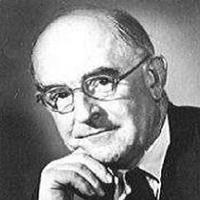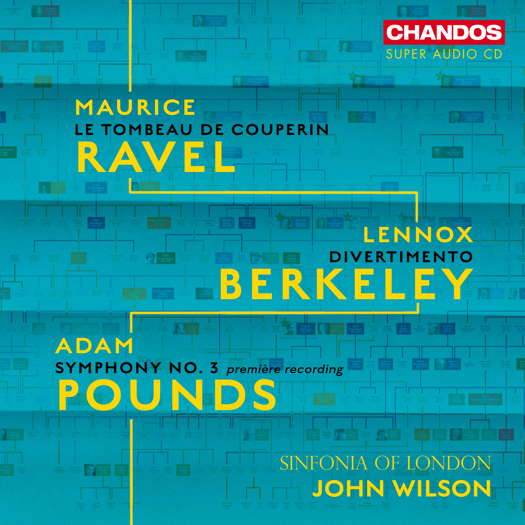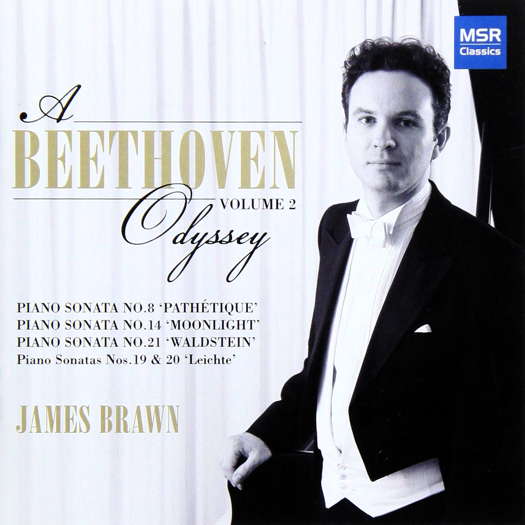 SPONSORED: Ensemble. Unjustly Neglected - In this specially extended feature, Armstrong Gibbs' re-discovered 'Passion according to St Luke' impresses Roderic Dunnett.
SPONSORED: Ensemble. Unjustly Neglected - In this specially extended feature, Armstrong Gibbs' re-discovered 'Passion according to St Luke' impresses Roderic Dunnett.
All sponsored features >>

Interconnected Composers
GEOFF PEARCE listens to orchestral music by Ravel, Lennox Berkeley and Adam Pounds
'The Pounds work is a revelation and I would buy this disc just for this alone.'
This is a great new release by Chandos, featuring three composers that are interconnected, as the brief enclosed notes explain. The first work, the Ravel, is well known and recorded by many great orchestras and conductors (as well as, of course, the various recordings of the work for piano solo, as it was originally intended). The Berkeley is quite a popular work too, although I had never heard it before, and the symphony of Pounds is the first recording of a work written in response to the recent COVID epidemic.
Le Tombeau de Couperin, Maurice Ravel's tribute to the Baroque French master, is a very popular work. Originally it was a six movement suite for piano written between 1914-17, and paid tribute to some of the fallen soldiers that Ravel was acquainted with, in World War I, dedicating particular movements to a soldier, or in one case two soldiers, rather than being an actual tribute to Couperin, yet at the same time paying tribute to the importance of the French Baroque keyboard suite. He later chose and orchestrated four movements in 1919.
Listen — Ravel: Prelude (Le Tombeau de Couperin)
(CHSA 5324 track 1, 1:26-2:07) ℗ 2024 Chandos Records Ltd :
I have heard many recordings of this as the orchestration features the oboe prominently, and one often encounters the first movement passages for oboe in orchestral auditions. The recording on this disk, in my opinion is rather too fast in the faster movements, and I like to hear a little more air so the movements breathe, and at times I think subtle shading and gestures do not come off as well as I am used to. However, I have to say that I grew more fond of it when I listened to it a few more times, especially for its rhythmic vitality. I take my hat off to the first oboe and cor anglais players particularly for a lovely tone, very fast agile playing and articulation and overall presence.
Listen — Ravel: Rigaudon (Le Tombeau de Couperin)
(CHSA 5324 track 4, 1:09-1:49) ℗ 2024 Chandos Records Ltd :
There are recordings I prefer, and I can remember a television programme featuring André Previn and, I think, the London Symphony Orchestra, which was simply breathtaking, not for the speed, but for the subtleties that were revealed in the performance.
The Divertimento of Lennox Berkeley is a four movement work, written in 1943 and dedicated to his teacher Nadia Boulanger. I have always enjoyed what music I have heard of this composer, and feel he has been largely neglected unfairly. The work does have a French flavour and the two outer movements reflect this the most. It is a very enjoyable work and beautifully orchestrated for chamber orchestra. It receives a very fine performance with this marvellous ensemble and all sections of the orchestra excel. The work lasts about eighteen minutes.
Listen — Lennox Berkeley: Scherzo (Divertimento)
(CHSA 5324 track 7, 3:50-4:29) ℗ 2024 Chandos Records Ltd :
The final work, Symphony No 3 by Adam Pounds (born in 1954 and who took private lessons from Lennox Berkeley), is almost hot off the press, being completed in 2021. It was written in response to the lockdowns that occurred in 2020-21 in response to COVID and, as the composer says, illustrates the 'sadness, humour, determination and defiance' that people showed at that time. It is a substantial work of around thirty minutes and is in four movements. It was dedicated to the forces that are giving its first recording on this disc.
The first is marked 'Largo', and there is sort of a hushed expectation here that is ominous. The pace quickens, but not for long, and it dissolves into a series of solos for woodwind, and then a livelier and driven section develops. It is a little martial in nature, almost like a call to arms. This does subside to a reflective and rather sad section, perhaps reflecting the sadness, but the livelier section returns defiantly. It is almost Shostakovich-like in it's intensity. This again gives way to a sad and reflective section. It is a powerful movement.
Listen — Adam Pounds: Largo (Symphony No 3)
(CHSA 5324 track 9, 3:22-4:09) ℗ 2024 Chandos Records Ltd :
The quite mixed second movement is marked 'Tempo di Waltz'. There are times when the music is almost jocular, and others when it is somewhat grotesque. I feel there are moments where he may be influenced by both Shostakovich and Khachaturian.
Listen — Adam Pounds: Tempo di Waltz (Symphony No 3)
(CHSA 5324 track 10, 3:26-4:21) ℗ 2024 Chandos Records Ltd :
The third movement is a rather stately elegy, full of sadness, weariness and resignation, but at no point does it wallow. Overall, as with the symphony as a whole, I am very surprised at what a coherent, heartfelt and beautiful work this is, and why have I not heard of this composer before. I am sure that this work will be performed often.
Listen — Adam Pounds: Elegy (Symphony No 3)
(CHSA 5324 track 11, 4:40-5:27) ℗ 2024 Chandos Records Ltd :
The final movement, 'Allegro Moderato', is upbeat and defiant, and life seems to be resuming slowly but surely. There are moments of conflict and anguish, but one senses that the corner has been turned and it is a great end to a symphony with a sad and weighty third movement. The middle section is reflective, sad and almost questioning, and I was wondering whether the composer would leave is in that mood, pondering, but the closing section reflects the first, and the movement ends defiantly.
Listen — Adam Pounds: Allegro moderato (Symphony No 3)
(CHSA 5324 track 12, 7:11-7:55) ℗ 2024 Chandos Records Ltd :
This, in the balance of things, is a very fine disc indeed. The Pounds work is a revelation and I would buy this disc just for this alone. The sound quality of the recording is on the bright side but doesn't become harsh, and the overall clarity is impressive. The Sinfonia of London is a very good orchestra and is responsive to its fine conductor, John Wilson. This is a disc to savour and play often.
Copyright © 12 January 2024
Geoff Pearce,
Sydney, Australia




